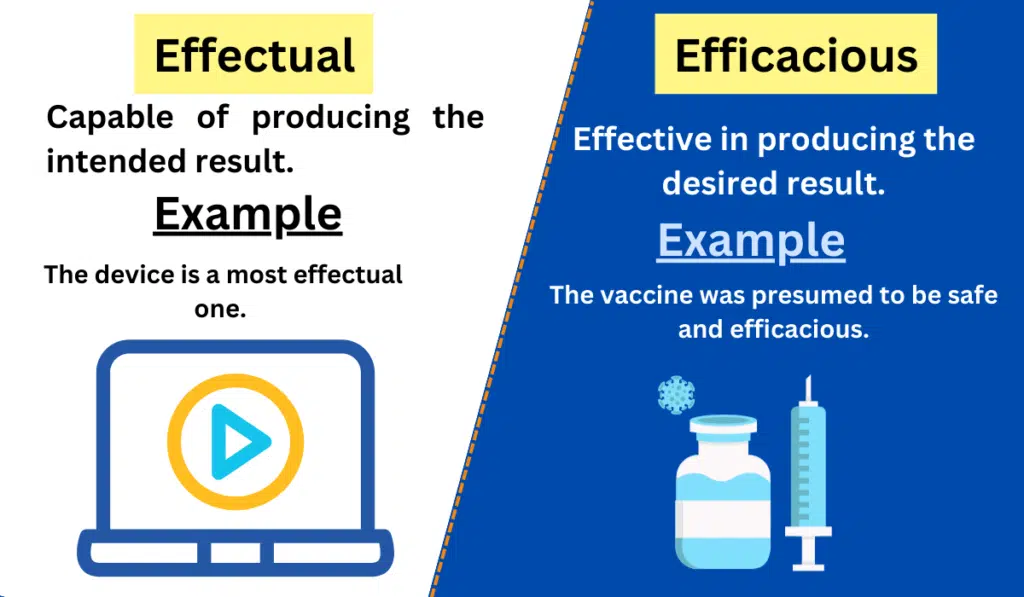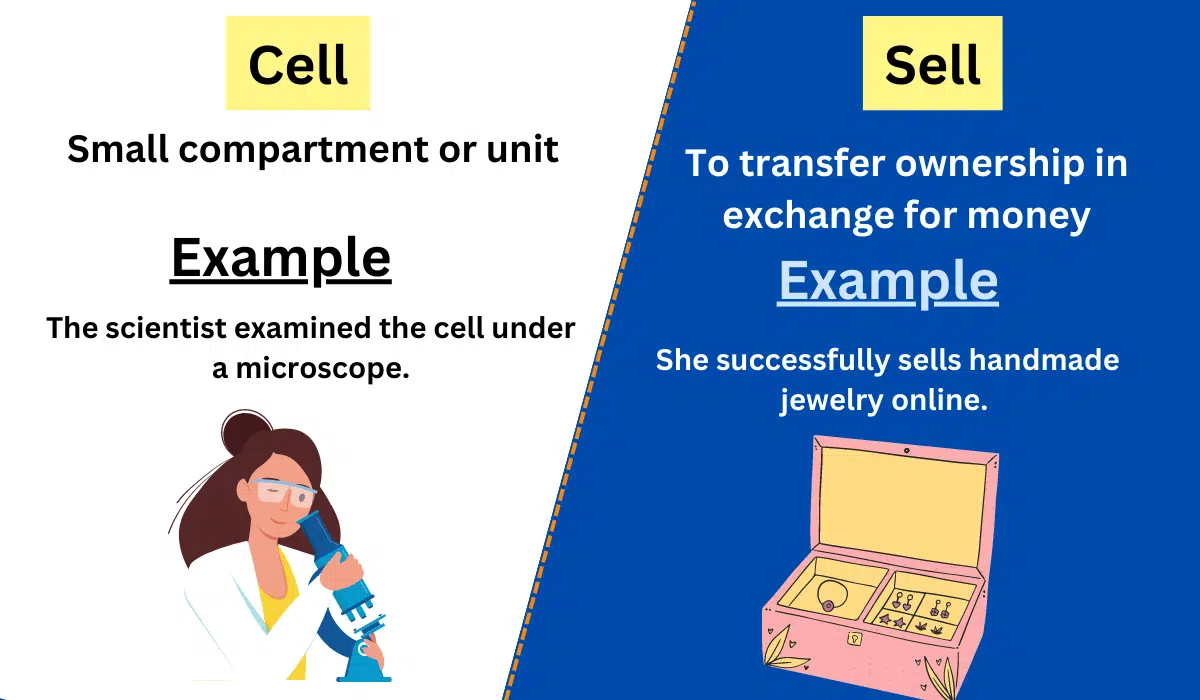Effectual vs. Efficacious-Difference between and example
When it comes to describing the effectiveness and success of actions or measures, two words that are often used interchangeably are “effectual” and “efficacious.”

While they share similarities in meaning, they have distinct nuances that set them apart.
In this article, we will explore the differences between “effectual” and “efficacious,” providing clear definitions, examples, and a comparative analysis.
By understanding their meanings and usage, we can better articulate our thoughts and communicate with precision.
Meanings and Examples
Effectual Meaning
The meaning of effectual is,
Adjective: “Effectual” refers to something that is capable of producing the intended result or achieving the desired outcome.
Examples of Effectual
- The effectual implementation of the new software system improved efficiency and productivity in the company.
- The effectual use of storytelling captivated the audience and conveyed the message effectively.
- The effectual leadership of the project manager ensured the successful completion of the complex task.
Efficacious Meaning
The meaning of efficacious is,
Adjective: “Efficacious” describes something that is effective in producing the desired result or having a beneficial impact.
Examples of Efficacious
- The drug proved to be highly efficacious in treating the symptoms of the disease.
- The efficacious marketing campaign led to a significant increase in sales and brand recognition.
- The efficacy of the training program was evident in the improved performance of the employees.
Difference between Effectual and Efficacious
| Category | Effectual | Efficacious |
| Adjective | Capable of producing the intended result or desired outcome | Effective in producing the desired result or beneficial impact |
| Example | The effectual implementation of the new software system | The drug proved to be highly efficacious |
| Usage | Referring to the capability of achieving the desired outcome | Describing the effectiveness and beneficial impact |
| Grammar | Adjective | Adjective |
Usage in a Paragraph
When it comes to achieving success, both effectual and efficacious actions play a significant role. An effectual approach focuses on ensuring that the steps taken are capable of producing the intended results or achieving the desired outcome.
For example, in the context of implementing a new software system, an effectual approach involves careful planning, analysis, and execution to improve efficiency and productivity.
On the other hand, an efficacious approach emphasizes the effectiveness of the action in producing a beneficial impact.
This can be seen in the case of a drug that is highly efficacious in treating the symptoms of a disease, leading to improved health outcomes for patients.
By recognizing the distinction between effectual and efficacious actions, individuals and organizations can make informed decisions and strategies that lead to desired results and positive outcomes.
While “effectual” and “efficacious” share a common thread of effectiveness, they differ in their specific nuances.
“Effectual” focuses on the capability of producing the intended result or achieving the desired outcome, while “efficacious” emphasizes the effectiveness of the action in generating a beneficial impact.
By understanding and employing these terms appropriately, we can express our thoughts with clarity and precision.
Whether aiming for effectual strategies or efficacious interventions, recognizing the distinctions between these words empowers us to communicate effectively and make informed choices that lead to success.







Leave a Reply